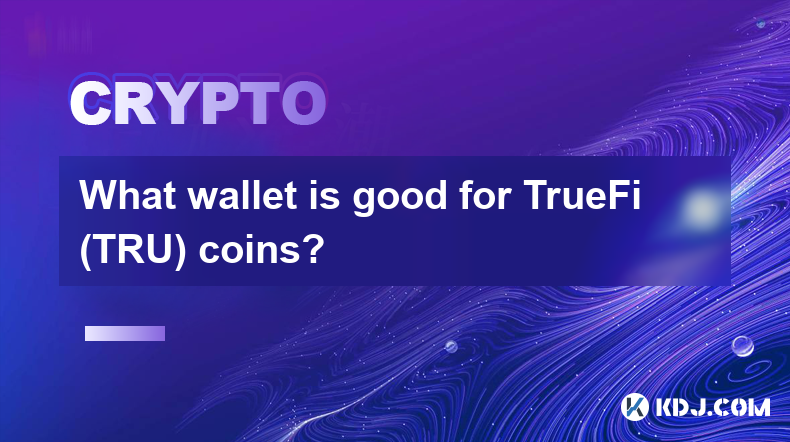-
 Bitcoin
Bitcoin $102,163.2697
6.02% -
 Ethereum
Ethereum $2,150.5881
19.90% -
 Tether USDt
Tether USDt $1.0002
-0.01% -
 XRP
XRP $2.2816
8.03% -
 BNB
BNB $621.9127
3.90% -
 Solana
Solana $160.9056
10.18% -
 USDC
USDC $0.9999
-0.01% -
 Dogecoin
Dogecoin $0.1919
12.84% -
 Cardano
Cardano $0.7428
12.87% -
 TRON
TRON $0.2549
2.81% -
 Sui
Sui $3.9413
20.96% -
 Chainlink
Chainlink $15.6333
15.00% -
 Avalanche
Avalanche $21.5896
11.76% -
 Stellar
Stellar $0.2857
10.70% -
 Shiba Inu
Shiba Inu $0.0...01415
12.36% -
 Bitcoin Cash
Bitcoin Cash $418.6912
17.25% -
 UNUS SED LEO
UNUS SED LEO $8.8588
1.73% -
 Pi
Pi $0.6406
10.47% -
 Hedera
Hedera $0.1918
10.27% -
 Toncoin
Toncoin $3.2151
7.17% -
 Hyperliquid
Hyperliquid $23.1281
10.85% -
 Litecoin
Litecoin $93.2866
5.66% -
 Polkadot
Polkadot $4.3578
11.64% -
 Monero
Monero $297.8483
6.26% -
 Dai
Dai $1.0002
0.00% -
 Bitget Token
Bitget Token $4.4492
5.91% -
 Ethena USDe
Ethena USDe $1.0003
-0.04% -
 Pepe
Pepe $0.0...01078
32.09% -
 Bittensor
Bittensor $417.8303
16.87% -
 Uniswap
Uniswap $5.6674
18.46%
What wallet is good for TrueFi (TRU) coins?
For enhanced security and offline storage of your TRU tokens, consider hardware wallets like Ledger Nano X or Trezor Model T, known for their robust security features and support for a wide range of cryptocurrencies.
Dec 08, 2024 at 09:45 pm

What Wallet is Good for TrueFi (TRU) Coins?
TrueFi is a decentralized protocol that allows users to lend and borrow cryptocurrencies in a secure and transparent manner. TRU is the native token of the TrueFi protocol, and it is used to pay for transaction fees, rewards, and governance.
There are a number of different wallets that support TRU, but not all of them are created equal. Some wallets are more secure than others, while others offer more features. It is important to choose a wallet that meets your individual needs and security requirements.
Here is a list of some of the best wallets for storing TRU:
1. Ledger Nano X
The Ledger Nano X is a hardware wallet that offers superior security for your cryptocurrencies. It stores your private keys offline, making it virtually impossible for hackers to access your funds. The Nano X also supports a wide range of cryptocurrencies, including TRU.
Pros:
- Superior security
- Supports a wide range of cryptocurrencies
- Easy to use
Cons:
- More expensive than other wallets
2. Trezor Model T
The Trezor Model T is another hardware wallet that offers excellent security. It is similar to the Ledger Nano X in terms of features and functionality. However, the Trezor Model T is slightly less expensive.
Pros:
- Excellent security
- Supports a wide range of cryptocurrencies
- Easy to use
Cons:
- Slightly less expensive than the Ledger Nano X
3. MetaMask
MetaMask is a software wallet that is available as a browser extension and mobile app. It is one of the most popular wallets for storing TRU, as it is easy to use and supports a wide range of cryptocurrencies.
Pros:
- Easy to use
- Supports a wide range of cryptocurrencies
- Available as a browser extension and mobile app
Cons:
- Less secure than hardware wallets
4. Coinbase Wallet
The Coinbase Wallet is a software wallet that is available as a mobile app. It is one of the most user-friendly wallets, and it is a good choice for beginners.
Pros:
- User-friendly
- Good for beginners
- Supports a wide range of cryptocurrencies
Cons:
- Less secure than hardware wallets
- Not as many features as other wallets
5. Trust Wallet
The Trust Wallet is a software wallet that is available as a mobile app. It is a good choice for storing TRU, as it is easy to use and supports a wide range of cryptocurrencies.
Pros:
- Easy to use
- Supports a wide range of cryptocurrencies
- Good for beginners
Cons:
- Less secure than hardware wallets
- Not as many features as other wallets
Which Wallet Should You Choose?
The best wallet for you depends on your individual needs and security requirements. If you are looking for the most secure option, then a hardware wallet like the Ledger Nano X or Trezor Model T is a good choice. If you are looking for a more user-friendly option, then a software wallet like MetaMask or the Coinbase Wallet may be a better fit.
Ultimately, the decision of which wallet to use is up to you. However, it is important to do your research and choose a wallet that meets your needs and security requirements.
Disclaimer:info@kdj.com
The information provided is not trading advice. kdj.com does not assume any responsibility for any investments made based on the information provided in this article. Cryptocurrencies are highly volatile and it is highly recommended that you invest with caution after thorough research!
If you believe that the content used on this website infringes your copyright, please contact us immediately (info@kdj.com) and we will delete it promptly.
- Unstaked Quietly Proves Why It May Be the Best Crypto Right Now
- 2025-05-09 05:15:12
- As the Bitcoin Price Drives Toward $150,000, the ripple effect across the altcoin market is already being felt.
- 2025-05-09 05:15:12
- Solana (SOL) Price Prediction: SOL Pushes Toward a Breakout
- 2025-05-09 05:10:14
- Massive Reallocation to Drive Developer Engagement
- 2025-05-09 05:10:14
- Alex Mashinsky, Founder of Collapsed Crypto Lending Platform Celsius Network, Sentenced to 12 Years in Prison for Fraud
- 2025-05-09 05:05:15
- title: As interest in SHIB declines among retail investors, more than half of its holders are facing losses
- 2025-05-09 05:05:15
Related knowledge

Is Ethereum smart contract call fee high? How to optimize costs?
May 08,2025 at 09:35am
Is Ethereum Smart Contract Call Fee High? How to Optimize Costs? The world of Ethereum smart contracts has revolutionized the way we think about decentralized applications and blockchain technology. However, one of the most frequently discussed topics within this realm is the cost associated with executing smart contract calls. In this article, we will ...

Is Ethereum Layer2 fee low? How to use it cheaper?
May 08,2025 at 03:56am
The question of whether Ethereum Layer 2 solutions offer lower fees and how to use them more economically is a topic of great interest within the cryptocurrency community. Ethereum's Layer 2 solutions have been developed to address the high transaction fees and scalability issues associated with the main Ethereum network. In this article, we will delve ...

How to calculate Ethereum network fee? How to reduce transaction costs?
May 08,2025 at 02:15am
Understanding and managing Ethereum network fees is crucial for anyone involved in transactions on the Ethereum blockchain. The network fee, also known as gas fee, is the amount of Ether (ETH) required to successfully conduct a transaction or execute a smart contract on the Ethereum network. Calculating these fees and finding ways to reduce them can sig...

What is Ethereum Gas Fee? How to optimize Gas Fee to save costs?
May 08,2025 at 03:43am
Ethereum gas fees are a crucial aspect of interacting with the Ethereum blockchain. Understanding and optimizing these fees can significantly impact the cost-effectiveness of transactions and smart contract interactions. In this article, we will delve into what Ethereum gas fees are, how they are calculated, and provide detailed strategies for optimizin...

How to perform MOVE cross-chain transfer? What to do if the gas fee is too high?
May 07,2025 at 08:03pm
Introduction to MOVE Cross-Chain TransferCross-chain transfers have become an essential part of the cryptocurrency ecosystem, allowing users to move assets between different blockchain networks. One of the popular protocols for achieving this is the MOVE cross-chain transfer. This article will guide you through the process of performing a MOVE cross-cha...

How is the DYDX liquidation price calculated? How is the forced liquidation mechanism?
May 08,2025 at 06:49am
The DYDX liquidation price and the forced liquidation mechanism are crucial aspects of trading on the dYdX platform, a decentralized exchange that allows users to trade perpetual contracts. Understanding these concepts is essential for managing risk and maximizing potential returns. In this article, we will delve into the details of how the DYDX liquida...

Is Ethereum smart contract call fee high? How to optimize costs?
May 08,2025 at 09:35am
Is Ethereum Smart Contract Call Fee High? How to Optimize Costs? The world of Ethereum smart contracts has revolutionized the way we think about decentralized applications and blockchain technology. However, one of the most frequently discussed topics within this realm is the cost associated with executing smart contract calls. In this article, we will ...

Is Ethereum Layer2 fee low? How to use it cheaper?
May 08,2025 at 03:56am
The question of whether Ethereum Layer 2 solutions offer lower fees and how to use them more economically is a topic of great interest within the cryptocurrency community. Ethereum's Layer 2 solutions have been developed to address the high transaction fees and scalability issues associated with the main Ethereum network. In this article, we will delve ...

How to calculate Ethereum network fee? How to reduce transaction costs?
May 08,2025 at 02:15am
Understanding and managing Ethereum network fees is crucial for anyone involved in transactions on the Ethereum blockchain. The network fee, also known as gas fee, is the amount of Ether (ETH) required to successfully conduct a transaction or execute a smart contract on the Ethereum network. Calculating these fees and finding ways to reduce them can sig...

What is Ethereum Gas Fee? How to optimize Gas Fee to save costs?
May 08,2025 at 03:43am
Ethereum gas fees are a crucial aspect of interacting with the Ethereum blockchain. Understanding and optimizing these fees can significantly impact the cost-effectiveness of transactions and smart contract interactions. In this article, we will delve into what Ethereum gas fees are, how they are calculated, and provide detailed strategies for optimizin...

How to perform MOVE cross-chain transfer? What to do if the gas fee is too high?
May 07,2025 at 08:03pm
Introduction to MOVE Cross-Chain TransferCross-chain transfers have become an essential part of the cryptocurrency ecosystem, allowing users to move assets between different blockchain networks. One of the popular protocols for achieving this is the MOVE cross-chain transfer. This article will guide you through the process of performing a MOVE cross-cha...

How is the DYDX liquidation price calculated? How is the forced liquidation mechanism?
May 08,2025 at 06:49am
The DYDX liquidation price and the forced liquidation mechanism are crucial aspects of trading on the dYdX platform, a decentralized exchange that allows users to trade perpetual contracts. Understanding these concepts is essential for managing risk and maximizing potential returns. In this article, we will delve into the details of how the DYDX liquida...
See all articles




















































































